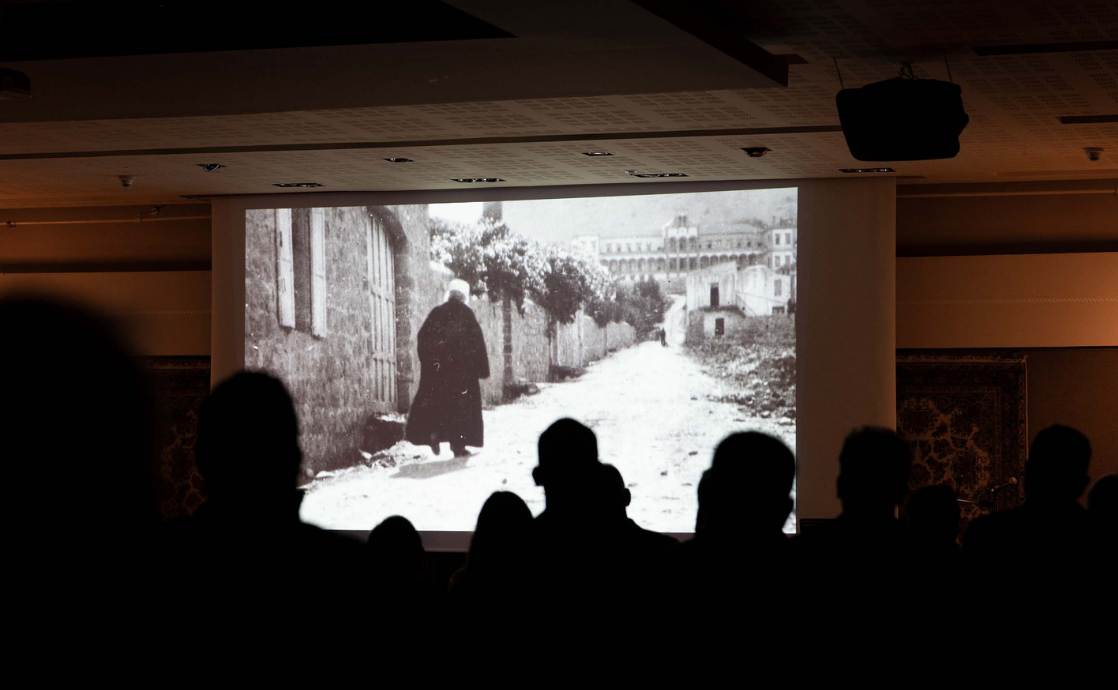The life and teachings of ‘Abdu’l-Bahá, the eldest son of Bahá’u’lláh, the founder of the Bahá’í Faith, present a unique tapestry of spiritual grandeur and humanitarian principles that resonates markedly within contemporary society. The honors bestowed upon him by dignitaries in the Holy Land serve as a profound testament to the enduring legacy he left behind. This article examines the dimensions of that legacy while addressing a prevalent fascination surrounding the commemorations of his contributions and impact.
To begin with, it is essential to understand who ‘Abdu’l-Bahá was, as well as the circumstances that rendered his role pivotal not only within the Bahá’í community but also on a global scale. ‘Abdu’l-Bahá’s leadership emerged in a tumultuous era characterized by radical societal shifts. He exemplified traits of compassion, integrity, and unswerving commitment to peace. Throughout his life, ‘Abdu’l-Bahá became a beacon of hope and inspiration for individuals from diverse backgrounds, unifying them through a shared vision of equality, unity, and justice. Thus, the fascination many feel for him transcends mere reverence; it is an acknowledgment of the intrinsic values he championed amidst adversity.
In an exploration of the reasons why dignitaries in the Holy Land honor ‘Abdu’l-Bahá, one must delve deeper into the significance of the land itself. The Holy Land serves not only as a physical locale but also as a symbolic representation of spiritual unity and convergence. Located in present-day Israel, the Baha’i World Centre encompasses the Bahá’í Shrine of the Báb, a UNESCO World Heritage Site, and residences pivotal to ‘Abdu’l-Bahá’s life. This geographical nexus becomes a microcosm of global spiritual aspiration, making the honoring of ‘Abdu’l-Bahá particularly impactful for leaders who often seek to cultivate peace and promote cooperative governance.
The reverence for ‘Abdu’l-Bahá can also be traced to his profound philosophical contributions. At the heart of his teachings lies a vehement advocacy for the oneness of humanity, a poignant call to dismantle the barriers that divide societies. Such principles resonate deeply in today’s fraught global environment, where divisions often exacerbate conflict and strife. By honoring ‘Abdu’l-Bahá, dignitaries not only applaud his accomplishments but also endorse a universal ethos that emphasizes compassion and collaboration. This juxtaposition—the individual’s legacy with societal needs—profoundly illuminates the reasons for his continued prominence.
Moreover, the observance of commemorative events serves an educational function that broadens understanding of the Bahá’í Faith. Dignitaries, through participation in such ceremonies, contribute to the demystification of this spiritual path. In conveying ‘Abdu’l-Bahá’s messages of love and harmony, these leaders advocate for the recognition of shared human values that transcend religious, cultural, and political divides. Such representations instigate dialogues that can foster intercultural exchanges, highlighting the universality of ‘Abdu’l-Bahá’s teachings.
Additionally, the acknowledgment of ‘Abdu’l-Bahá’s contributions reverberates through initiatives aimed at social transformation, particularly concerning issues like gender equality, racial justice, and poverty alleviation. His teachings advocate for the empowerment of women and the equitable treatment of all individuals, irrespective of their social or economic standing. Thus, when dignitaries honor ‘Abdu’l-Bahá, they tacitly champion the ethos of their own countries, affirming a commitment to principles of social equity and justice that resonate across various cultural landscapes.
A deeper inquiry reveals that the fascination surrounding ‘Abdu’l-Bahá could also stem from the enigmatic nature of his life experiences. As a man who encountered profound persecution, imprisonment, and exile, his narrative weaves together threads of resilience and triumph. The juxtaposition of personal hardship with a relentless dedication to uplifting humanity captivates individuals seeking role models who navigate challenges with grace and wisdom. Such a narrative encourages reflection on one’s own circumstances, prompting them to draw parallels with ‘Abdu’l-Bahá’s principles of perseverance and positivity.
Furthermore, historical context plays an essential role in understanding why ‘Abdu’l-Bahá’s legacy remains vibrant in contemporary thought. Living during the late 19th and early 20th centuries, a period marked by imperialism and societal upheaval, ‘Abdu’l-Bahá emerged as a progressive thinker advocating for the establishment of a global society founded on principles of dialogue, respect, and cooperation. This forward-thinking approach remains relevant, prompting ongoing interest in his philosophies that challenge the status quo. His capacity to envisage a world unified by shared human values has become a clarion call for modern leaders.
In summary, the numerous tributes paid by dignitaries in the Holy Land to honor ‘Abdu’l-Bahá encapsulate a multi-faceted reverence for a man whose teachings address the core needs of humanity. Both historical and contemporary contexts underscore the pertinence of his values, while cultural and societal dynamics elucidate why his legacy commands respect. The ongoing fascination with ‘Abdu’l-Bahá extends far beyond admiration for a singular figure; it encapsulates an enduring desire to emulate the principles he espoused, fostering hope that unity, peace, and justice can be relentlessly pursued. In this pursuit, the spiritual and ethical teachings of ‘Abdu’l-Bahá continue to invoke inspiration and challenge people to contribute meaningfully to the collective narrative of humanity.
